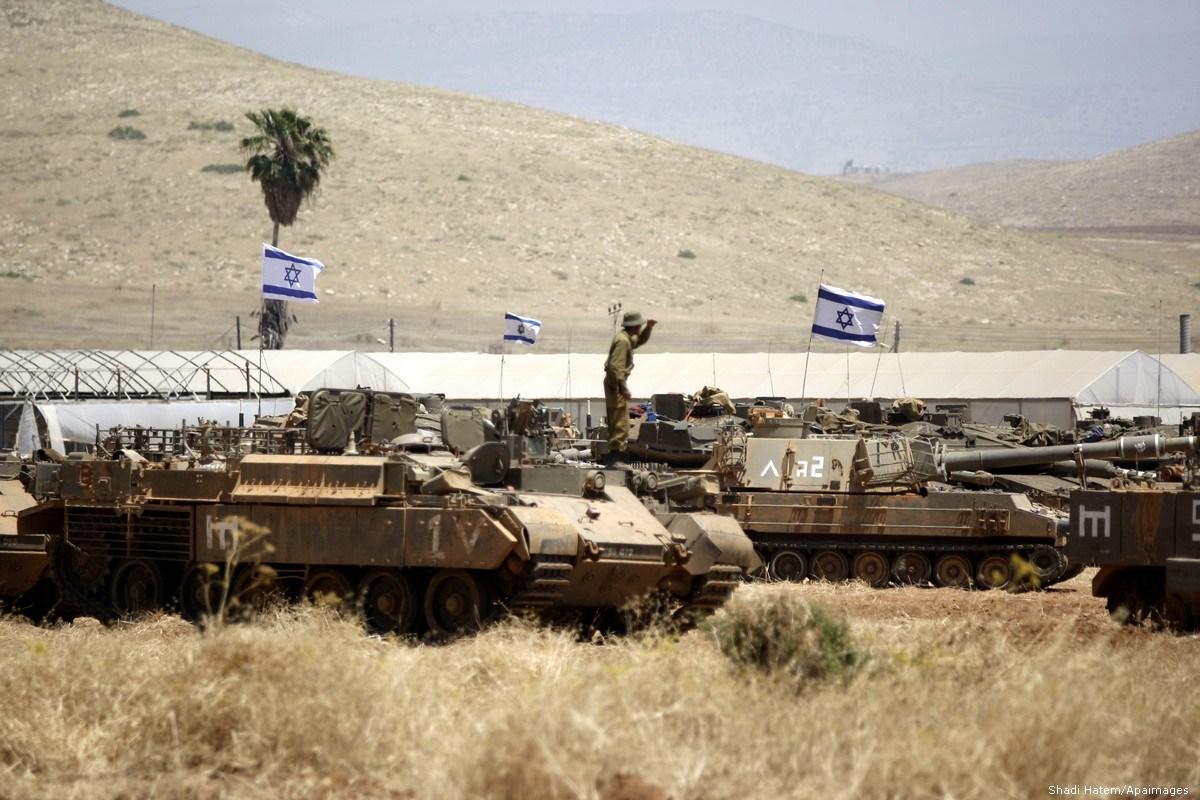Netanyahu’s proposed annexation of the Jordan Valley reveals its strategic importance

Israeli Prime Minister Benjamin Netanyahu has announced that he will impose Israeli sovereignty over parts of the West Bank, specifically the Jordan Valley, if he is returned to office after next week’s General Election. In doing so, he has revealed the strategic importance of the Jordan Valley. The annexation will mean that what remains of the occupied West Bank will be completely surrounded by Israeli-controlled territory.
Israel’s nominal border with Jordan is important for trade and travel, not just “defence”, as is claimed. Annexation also ensures that Israel remains in control of one of the most fertile agricultural areas in the region. The climate — warm in winter and very hot in summer — is conducive to the growth of a wide variety of fruit and vegetables, including bananas.
At the moment, Israel has moved 7,500 illegal settlers into the Jordan Valley who live in 26 settlement outposts. The Israeli government wants to double the number of settlers and establish extensive economic facilities and civil infrastructure to encourage more Israelis to live there.
The Jordan Valley is also home to 47,000 Palestinians in 20 towns, including Jericho, as well as a few thousand in less-established village areas. Together, they form around two per cent of the total Palestinian population in the West Bank.
Since the occupation of the West Bank in the 1967 Six Day War, all Israeli governments have regarded the Jordan Valley as Israel’s “eastern border” and have aspired to annex it to the state. Over the years, most of the territory there has been declared to be “state land”.
Under the Oslo Accords, the Jordan Valley was classified as Area C, more or less fully controlled by Israel, which has established four fixed roadblocks, while the army has tightened its restrictions significantly. Only Jordan Valley residents are allowed to pass through the checkpoints; other West Bank residents require a special permit issued by the Israeli Civil Administration.
Israel does not regard the Jordan Valley as a single geographic unit with the West Bank. Hence, those Palestinians living outside of the area but owning agricultural land therein have been banned from accessing their land and lost an important source of income. Moreover, Palestinian women who married men residing in the Jordan Valley and moved to live with them without changing the address on their ID card dare not leave the village areas for fear of not being allowed to return. Many service providers have stopped accessing these villages.

Palestinian farmers are seen during harvest season in Jordan Valley on 19 January 2015 [Shadi Hatem/Apaimages]
The Jordan Valley is blessed with abundant water resources. There are 133 underground wells, the majority of which are used for agricultural purposes. Israel has dug 35 wells with a production capacity of 40 million cubic metres; imposed restrictions on Palestinians drilling any new wells in the area; and closed Palestinian wells located in “closed military zones”.
Such zones include areas adjacent to the Jordan River up to 3-5 km, estimated at more than a third of the Valley’s area at almost 99,000 acres, which Palestinians are banned from accessing. The state has also established 90 military sites. This is intended to reduce the Palestinian presence while increasing Israel’s, for “security” reasons and so that the state can control natural resources.
Israel’s prime ministers have stressed repeatedly that it should prevent the establishment of a Palestinian state on the Dead Sea shoreline and prevent such an entity — should it ever come into being — from having geographic contiguity with any Arab land. Others have insisted that Israel’s future borders — which have never been declared — will include settlement blocs and the Jordan Valley.
Netanyahu’s recent announcement, therefore, was basically just him confirming what everyone already knew, including Israeli officials close to him who have said before that the Jordan Valley would remain in Israel’s hands, surrounding any Palestinian state from the east, and controlling the international border with Jordan. These are “necessary steps” for Israel to ensure that armed groups do not infiltrate the area.
The future of the Jordan Valley has been the focus of many discussions and deliberations within Israel’s security agencies. They have presented plans to successive Israeli governments, all of which expressed the official vision of the Jordan Valley as part of a broader examination of the fate of the West Bank, including the Israeli presence therein through a redeployment plan to form a new defensive line in the occupied Palestinian territory. This can be achieved by annexing the Jordan Valley as well as key spots on its western slopes, where it is believed to be of the utmost importance to control the high ground. Thus, Israel will effectively enclose the West Bank with a militarised and fully annexed Jordan Valley to the east, and the concrete “Separation Wall” in the west.
Israel intends to invest hundreds of millions of shekels in Jordan Valley projects to develop agriculture and tourism. Even though the Oslo Accords divided the Jordan Valley into areas of Palestinian, Israeli and shared control — the Palestinians control 85 km2, just 7.4 per cent; Israel controls 1,020 km2, 88.3 per cent; they have joint “control” over 50 km2, 4.3 per cent — Israel in reality clearly controls the whole area in order to block the expansion of a future Palestinian state towards Jordan; to preserve the strategic depth of Israel; and avoid any Palestinian military threat, as happened with the Salah Al-Din Gate in the southern Gaza Strip on the border with Sinai. This could result in the Palestinians’ loss of the entire Jordan Valley, although we can expect the “facts on the ground” to be used as a bargaining chip in any future negotiations, perhaps in exchange for the return of a few minor settlement blocs.
Source: Middle East Monitor

WRITE YOUR COMMENT